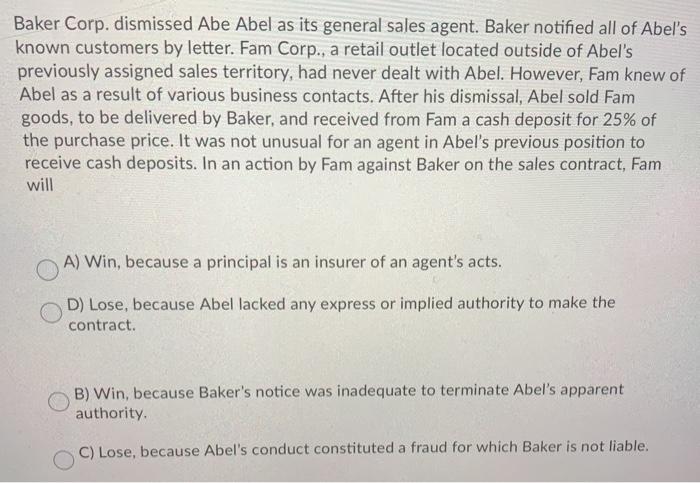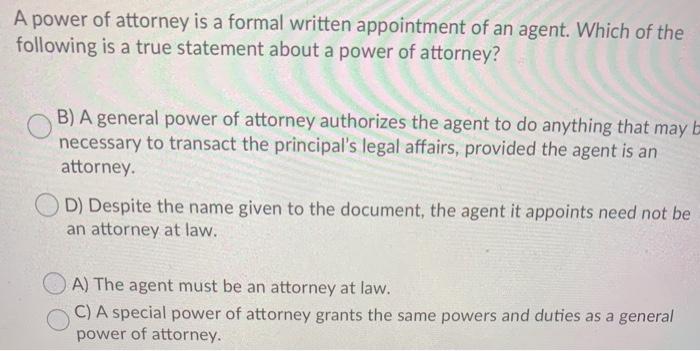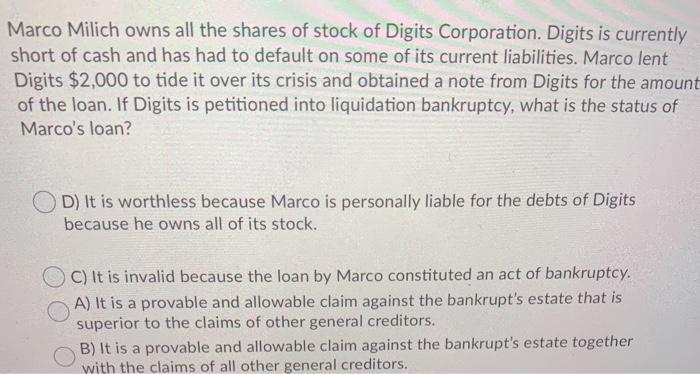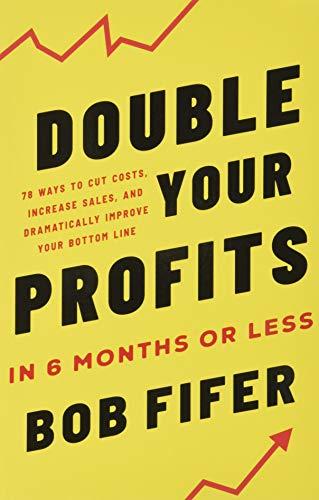Baker Corp. dismissed Abe Abel as its general sales agent. Baker notified all of Abel's known customers by letter. Fam Corp., a retail outlet located outside of Abel's previously assigned sales territory, had never dealt with Abel. However, Fam knew of Abel as a result of various business contacts. After his dismissal, Abel sold Fam goods, to be delivered by Baker, and received from Fam a cash deposit for 25% of the purchase price. It was not unusual for an agent in Abel's previous position to receive cash deposits. In an action by Fam against Baker on the sales contract, Fam will A) Win, because a principal is an insurer of an agent's acts. D) Lose, because Abel lacked any express or implied authority to make the contract. B) Win, because Baker's notice was inadequate to terminate Abel's apparent authority, C) Lose, because Abel's conduct constituted a fraud for which Baker is not liable. A power of attorney is a formal written appointment of an agent. Which of the following is a true statement about a power of attorney? B) A general power of attorney authorizes the agent to do anything that may be necessary to transact the principal's legal affairs, provided the agent is an attorney D) Despite the name given to the document, the agent it appoints need not be an attorney at law. A) The agent must be an attorney at law. C) A special power of attorney grants the same powers and duties as a general power of attorney. Marco Milich owns all the shares of stock of Digits Corporation. Digits is currently short of cash and has had to default on some of its current liabilities. Marco lent Digits $2,000 to tide it over its crisis and obtained a note from Digits for the amount of the loan. If Digits is petitioned into liquidation bankruptcy, what is the status of Marco's loan? D) It is worthless because Marco is personally liable for the debts of Digits because he owns all of its stock. C) It is invalid because the loan by Marco constituted an act of bankruptcy. A) It is a provable and allowable claim against the bankrupt's estate that is superior to the claims of other general creditors. B) It is a provable and allowable claim against the bankrupt's estate together with the claims of all other general creditors









